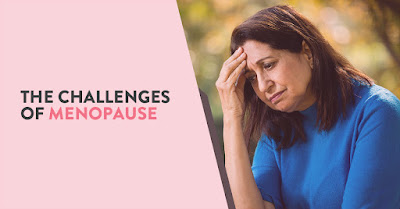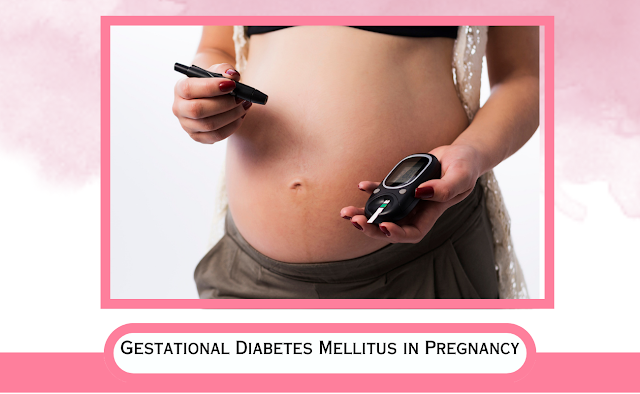Navigating the Challenges of Menopause: A Guide for Post Menopausal Women.
Post Menopausal Problems
Menopause is a natural and normal stage in a woman's life, but that doesn't mean it's easy. The physical and emotional symptoms of menopause can be challenging to navigate, and post-menopausal women need the support and resources to manage their symptoms.
Here are some tips for navigating the challenges of menopause:
- Understand what menopause is: Menopause is the end of a woman's menstrual cycle and fertility. It typically occurs in women between 45 and 55, but it can happen earlier or later. The most common symptoms of menopause include hot flashes, night sweats, mood swings, and irregular periods.
- Know that you're not alone: It can be easy to feel isolated during menopause, but it's important to remember that you're not alone. Many women experience similar symptoms during this time, and resources and support groups are available to help you cope.
- Talk to your doctor: If you're experiencing menopausal symptoms, you must talk to your doctor. Your doctor can help you determine the best treatment for your symptoms and may recommend hormone therapy, lifestyle changes, or other medicines.
- Make lifestyle changes: Some simple lifestyle changes can help alleviate menopausal symptoms. These include:
- Exercising regularly
- Eating a healthy diet.
- Getting enough sleep
- Reducing stress
- Wearing loose, cool clothing
- Using a fan or air conditioning
- Consider hormone therapy: Hormone therapy can effectively treat menopausal symptoms, but it's not suitable for everyone. Your doctor can help determine if hormone therapy is a good option for you based on your medical history and risk factors.
- Practice self-care: It's important to prioritize self-care during menopause. This can include taking time for relaxation and stress management, getting enough sleep, and engaging in activities that bring you joy.
- Seek support: If you're feeling overwhelmed or depressed during menopause, it's essential to seek help from friends, family, and healthcare professionals. This can include talking to a therapist or joining a support group.
Post-menopausal problems are a common concern for many women as they age. These issues can include physical, emotional, and sexual symptoms that can significantly impact the quality of life.
Here are some common post-menopausal problems and tips for managing them:
- Hot flashes: Hot flashes are a sudden feeling of warmth or heat in the upper body, accompanied by sweating and a rapid heartbeat. These can be caused by fluctuations in estrogen levels and can be managed through lifestyle changes, such as wearing loose, cool clothing and avoiding triggers like alcohol and spicy foods. Hormonal therapy may also be effective in reducing hot flashes.
- Vaginal dryness: Estrogen levels also play a role in vaginal lubrication. As estrogen levels decline during menopause, the vagina can become dry and uncomfortable, leading to painful intercourse. Lubricants and moisturizers can help with dryness, and low-dose vaginal estrogen creams or tablets may also be recommended.
- Mood changes: It's normal to feel a range of emotions during menopause, but some women may experience more severe mood changes, including anxiety, irritability, and depression. Managing stress and getting enough sleep can help, and talking to a mental health professional may also be beneficial.
- Sexual dysfunction: Changes in estrogen levels can also affect sexual function, leading to reduced libido and difficulty with arousal and orgasm. Communicating with a partner, engaging in regular physical activity, and trying different sexual positions or techniques can all help to improve sexual satisfaction.
- Bone loss: After menopause, women are at increased risk for osteoporosis, a condition in which bones become weak and brittle. Getting enough calcium and vitamin D, engaging in weight-bearing exercise, and avoiding smoking and excessive alcohol consumption can help maintain bone health.
- Cardiovascular disease: Menopause is also associated with an increased risk of heart disease. Maintaining a healthy weight, exercising regularly, and avoiding tobacco and excess alcohol can help to reduce this risk.
In conclusion, menopause is a natural and normal stage in a woman's life, but it can be challenging to navigate. By understanding what menopause is and knowing that you're not alone, talking to your doctor, making lifestyle changes, considering hormone therapy, practicing self-care, and seeking support, you can manage your symptoms and find relief during this time. If you're struggling with menopause and need additional help, we recommend consulting with Dr. Deepti Asthana, a skilled gynecologist who can provide expert guidance and treatment options. Remember to take care of yourself and reach out for help if you need it.





Comments
Post a Comment